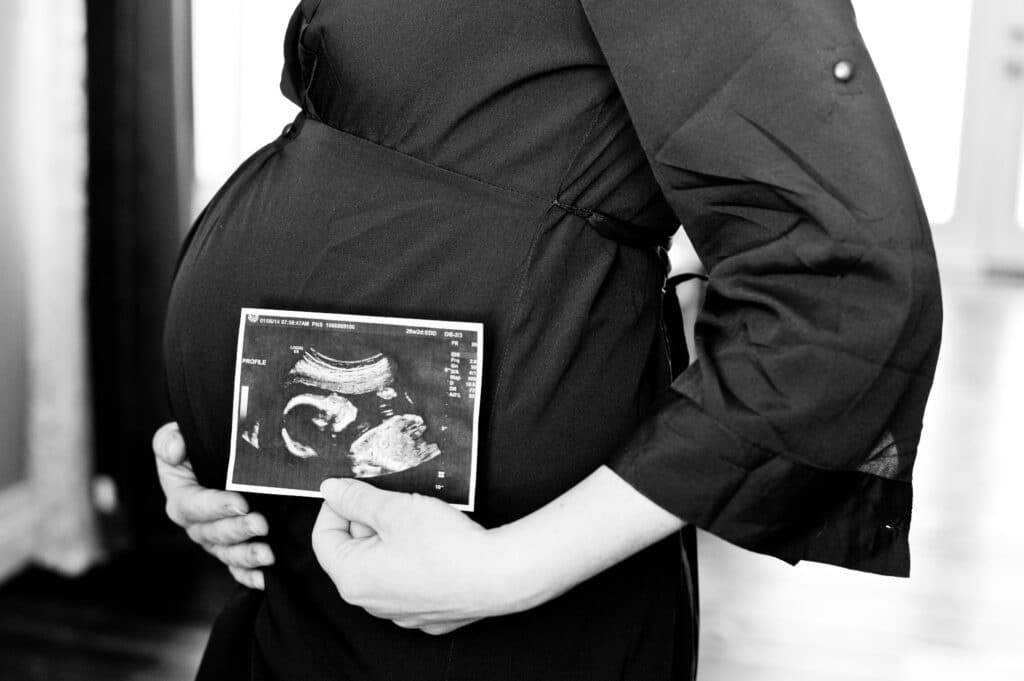40 weeks: God’s womb & mine
The baby is nine and a half months old.
I could say I don’t know where the time flew, but I do. Newborn blur, life with two littles, the months when he stopped sleeping, the months when we started moving. Since his arrival on this spinning planet, we’ve been whirling fast.
But the nine month marker makes me stop and take notice.
He’s now been on this side of life – the bright, busy, bustling side – for as long as he grew in silence and darkness within me. It’s the tipping point towards life ex utero.
When I marvel at how much he’s changed since last August, I realize it’s matched only by the astonishing growth that took place in his first nine months, the ones wrapped in mystery. Before my eyes he’s learned to smile and laugh, crawl and creep. But before I ever glimpsed him, he transformed from two cells into a complete, complex human being. A holy mystery.

In Scripture, the Hebrew word for mercy is related to the word for womb. Thus, to live within God’s compassion is to rest within God’s womb. A reassuring image of God’s mothering love.
Yet as I reflect on my son’s nine months within and nine months without, I realize that God’s womb is also a challenging place to be.
We think of the womb as a place of protection, creation and nourishment. But it is also a place of transition and tremendous change, from which we are thrust out into a world that is bigger and brighter and more terrifying than anything we ever imagined inside. The mercy and compassion of God in which we live and move and having our being sends us forth to something more, something beyond. The love of others. The sacrifice of self. The challenge of forgiveness. The struggle for justice.
I remember in the last weeks of both my pregnancies when strangers and friends would remind me that it’s easier to care for a baby while he’s still inside. And it’s partly true. While I was pregnant, my babies slept and ate and grew all on their own – without my having to rouse for 2 am feedings, change their diapers or wash their clothes. But while I loved them then – with the intimate, mysterious fire of a woman for the child within her – I love them so much more this side of birth. It’s harder and messier to parent them now, but more beautiful and rewarding, too.
I watch my baby now, starting to pull himself up (and toys down), feeding himself (and trying to eat things he shouldn’t). With every milestone he passes, he increases his capacity for learning but also his vulnerability for getting hurt. The world can be a painful and destructive place, too. But he still lives within God’s womb. A womb that cradles him close but also pushes him out.
Perhaps, like a parent, God longs to hold us safe but delights in our going forth. Knowing that we are always carried within love larger than ourselves.
“The Hebrew work for a woman’s womb and the word for compassion are related, and both are related to the word for mercy. Thus, the mother’s intimate, physical relationship with her newborn is the prime image for compassion and, hence the compassion of God in Christ. To speak of the compassion of God is to speak of God’s quivering womb — a womb that trembles at the sight of the frailty, suffering and weakness of the child.”
Michael Downey, Altogether Gift: A Trinitarian Spirituality

So beautiful – thank you so much for this. And thanks for the reminder of rich words in Downey’s book, which I had as a text in a Trinity class a few years back.